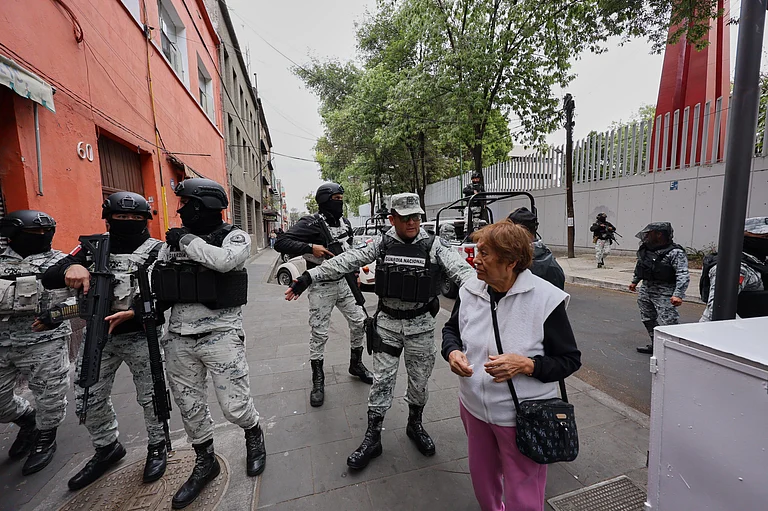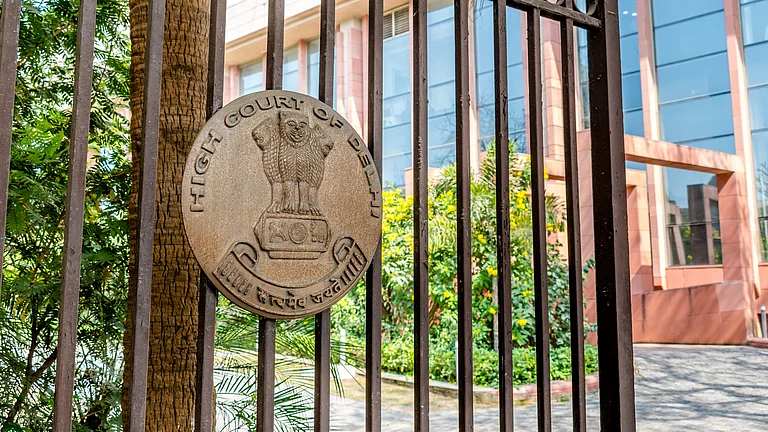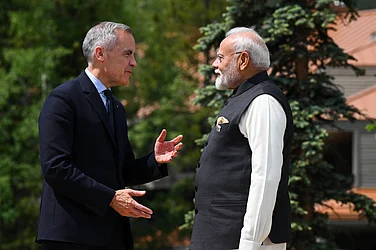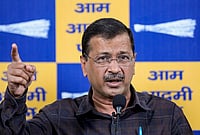The right to shelter, enshrined under Article 21 of the Indian Constitution, represents a fundamental aspect of human dignity and personal security. However, in recent times, this right is increasingly under threat due to arbitrary demolitions that disregard established legal principles across the country, along with incidents of forced evictions. These events have demonstrated a troubling trend where authorities prioritise expedient action over adherence to the rule of law, leading to forced evictions without due process. This practice, often termed as the "rule of wheels (bulldozer)", undermines constitutional mandate and subjects’ vulnerable communities to unjust hardships.
Rule of Wheels Over Law
The right to shelter guarantees does not mean a mere right to a roof over one's head but right to all the infrastructure necessary to enable them to live and develop as a human being. A report suggests that within two years, around 1,50,000 homes were razed, 7,38,000 were left homeless across the country. These demolitions frequently violate the settled principles of natural justice, primarily the right to be heard.
In India, unlike other countries, the courts have not been on the page when it comes to shelter jurisprudence, there’s no clarity on the judicial side–especially when it comes to demolition drives where due process has not been followed. The Supreme Court has on numerous occasions, have halted the demolition drives, but till date there are no stringent guidelines or a judgment which says that the whole process of punishment without trial is bad in law. At present what we need is a detailed guidelines apart from ‘status-quo’ orders, because even today the process of demolitions without following the due procedure is happening across the country.
The table below are some of the incidents where shelter jurisprudences was at stake:
| Location & Date | Discription | Reason | Court Relief |
| Jahangirpuri, Delhi - April 2022 | Demolition of structures following communal violence | Claimed to target illegal enroachments post-riots | Supreme Court ordered a stay on the demolition |
| Khargone, Madhya Pradesh -April 2022 | Demolition of houses after communal clashes | Alleged involvement in riots;structures deemed illegal | No significant relief demolitions continued |
| Madhya Pradesh - June 2024 | Demolition of house of accused after beef found in fridge | Alleged illegal construction ;context of cow protection laws | No significant relief; demolition upheld |
| Prayagraj, Uttar Pradesh 2022 | Demolition of houses of accused rioters | Following protests | No significant relief; demolitions continued |
| Mumbai, Maharashtra - September 2020 | Demolition of Kangana Ranaut's office | Alleged illegal construction ;context of political friction | Bombay High Court ruled demolition was malafide ;awarded compensation |
| Assam - 2021-2023 | Demolition of houses in Dhalpur during eviction drive | Alleged encroachment on government land ; protests ensued | Guwahati High Court took cognizance ; limited relief for rehabiliation |
| Delhi - April 2023 | Demolition of structures in Tughlakabad | Alleged illegal encroachments; context of land reclamation | Limited relief ; some demolitions stayed by High Court |
| Nuh, Punjab and Haryana - August 2023 | Demolition and Eviction Drive | Illegal encroachments to government land | P&H HC questioned the government and halted the Demolition drive, but the most of the properties were already demolished |
| Lucknow , Uttar Pradesh | Akbar Nagar demolition drive | Illegal encroachments | Allahabad High Court halted the demolitions , later upheld the demolition giving time to the residents to file for rehabilitation , the Supreme Court upheld the High Court's decision in appeal. |
The instances mentioned in the table above reflect that most of the demolitions were carried out after a specific incident. Needless to say, that for any offence whatsoever, whether clash between communities, allegations of conversion etc. there are provisions which specifically deal with it and the accused persons should be tried in accordance to law. Whereas, what we have been witnessing is a slightly different procedure where there is a coincidence—that after any alleged crime—there very next moment demolitions are carried out, which reminds us of the doctrine of colourable legislation, which states what can’t be done directly, cannot be done indirectly, but in this case, it seems the doctrine has been reversed.
Every state has a separate statute/law which governs the process of demolition. For instance, in Uttar Pradesh, Delhi and Madhya Pradesh, the law itself provides that the principle of audi alteram partem should be followed, which means that the right and opportunity of being heard should be given to parties—where a demolition has to take place. In furtherance, the law also mandates that notices should be given to the concerned parties before such demolition has to be carried out.
There are many instances where it has been alleged that no notices were given to the parties, and interesting there are cases where even demolition was allegedly carried out against accused persons who were involved in some activities (like protests, anti-conversion law etc) and the latest incident being—the fridge incident, where beef was allegedly found in someone’s fridge and following which, the house was demolished.
In a nutshell, all these incidents of demolition without following the due process, reverses the criminal justice process. It gives you punishment and then asks you to face the trial. The lack of proper notice and opportunity to present a defence leaves the affected parties without recourse, rendering the actions of the authorities arbitrary and oppressive. It is imperative for the Supreme Court to intervene and establish comprehensive pan-India guidelines that ensure no individual is deprived of their shelter without a fair hearing. Such judicial oversight is crucial to uphold the sanctity of the right to shelter and protect the marginalised from unwarranted displacement.
The Shelter Jurisprudence and Judicial Response
Since the 1980s, the Supreme Court has interpreted the right to life under Article 21 to recognise and include the right to housing/shelter. In doing so, the courts have placed reliance on Directive Principles of State Police, International Law and a comparative analysis across various courts across the globe. In the judgments of Chameli Singh vs. State of Uttar Pradesh and Shantistar Builders v. Narayan Khimalal Totame, the Supreme Court expanded the meaning of right to shelter and categorically observed as follows:
“Shelter for a human being, therefore, is not a mere protection of his life and limb. It is home where he has opportunities to grow physically, mentally, intellectually and spiritually. Right to shelter, therefore, includes adequate living space, safe and decent structure, clean and decent surroundings, sufficient light, pure air and water, electricity, sanitation and other civic amenities like roads etc. so as to have easy access to his daily avocation.”
In the judgment of Munish Ram v. Delhi Admn, the Court held that no one, including the true owner, has a right to dispossess the trespasser by force if the trespasser is in settled possession of the land and, in such a case, unless the lessee is evicted in the due course of law, he is entitled to defend his possession even against the rightful owner. Further, in the judgment of Krishna Ram Mahale v. Shobha Venkat Rao, the Supreme again retaliated, and held that where a person is in settled possession of property, even on the assumption that he has no right to remain on the property, he cannot be dispossessed by the owner of the property except by recourse to law.
The Delhi High Court in Ajay Maken and Ors v. Union of India held that the right to housing is a bundle of rights not limited to a bare shelter over one's head. It includes the right to livelihood, right to health, right to education and right to food, including right to clean drinking water, sewerage and transport facilities. In Sudama Singh, the Delhi High Court held that prior to carrying out an eviction, it was the duty of the state to conduct a survey of all persons who may be evicted, to check their eligibility under existing schemes for rehabilitation, and to carry out a rehabilitation exercise ‘in consultation with each one of them [persons at risk of an eviction] in a meaningful manner.’
With regard to the due procedure, the Supreme Court in Olga Tellis v. Bombay Municipal Corporation, held that notice and hearing must be ordinarily provided to ensure that the procedure for removal of encroachments depriving people of their right to life constituted a ‘just, fair and reasonable’ procedure. At present the courts have focussed on the requirement to provide notice, but not so much on the requirement to carry out a hearing with residents facing evictions. A hearing prior to evictions is as much of a constitutional requirement as a notice, as held by a Constitution Bench of the Supreme Court in Olga Tellis case.
In the judgment of Suresh Tirkey v The Governor with Connected Matters, the Karnataka High Court significantly held that the right to shelter is a fundamental right of every citizen under the Constitution and any infraction of this right by State action must invite judicial intervention to protect the occupants of a dwelling house.
In the Akbar Nagar case, in Lucknow, a single judge bench of Justice Pankaj Bhatia of the Allahabad High Court addressed the right to shelter. The order passed by him underscored the importance of Article 21 of the Constitution of India, which includes the right to earn a livelihood. Justice Bhatia eloquently stated:
"As prima-facie, the rights flowing from Article 21 of the Constitution of India, which includes the right to earn livelihood, is prima-facie affected and it is the bounden duty of the State and its instrumentalities to ensure that Article 21 of the Constitution of India is not violated to give effect to the other obligations of the State which includes the obligation to resettle and which is also being discharged by the Lucknow Development Authority…”
However, despite this insightful observation, the authorities appealed the decision, and the High Court subsequently upheld the demolitions, and the Supreme Court later dismissed the contentions of the residents of Akbar Nagar, effectively sanctioning the actions of the authorities, and only gave some time to the residents to leave the premises and apply for rehabilitation.
It is interesting to recall that during the Haldwani Eviction drives, the Uttarakhand High Court opined that the inhabitants in Haldwani did not have an enforceable legal right to the said land, which might be affirmative but on the other hand, the question of due process, rehabilitation and proportionality should have also been considered by the court. Later, when the case went to the Supreme Court, and the eviction process was challenged before the Supreme Court and a bench comprising of Justice Oka and Justice SK Kaul stayed the directions issued by the Uttarakhand High Court and raised apprehension over the fact that the High Court had recorded in this order that the authorities can also use “Para Military Forces” to vacate the said premises.
“It may not be correct to say that paramilitary forces have to be deployed to remove people who have been living there for decades. People stayed there for so many years, some rehabilitation has to be given. There are establishments there, how can you say in seven days clear them off?” the court remarked while staying the High Court order.
The discussion and reference above make it ample clear that shelter jurisprudence and right to shelter revolves in and around Article 21 of the Indian Constitution, but the real question lies whether being a fundamental right, it enjoys a fundamental status or not? Needless to say, that the right is not absolute but settle judicial precedents suggests that even if a person has no legal right over a property, then not even the owner is allowed to use force to throw out the person(s) concerned.
Road ahead
The road ahead is not clear because of two reasons, one being no specific ruling of the Apex Court which regulates such process, and secondly, normalising the said demolitions without a due procedure. The right to shelter not only includes fair housing but also guarantees that a shelter (whether ownership rights exist, or doesn’t) should not be taken away without following the due process.
In India, the judicial response can be categorised into two parts, one being in cases of dispossession or eviction and other being in cases of demolition. In the former, the courts have been affirmative and relief giving to the victims, but in the latter, the decisions are divided and not to the point. In cases of demolition also, ample time should be given to the other party by the authorities concerned, but there are have alleged instances where demolition was done without following the due process. Hence, it is need of the hour that the Supreme Court may list down certain guidelines or pass a detailed order pertaining to the issues in and around demolitions, where punishment is being served before the trial.
The Supreme Court on many occasions (including the Haldwani Eviction drive case) had got an excellent opportunity to clearly set out the substantive notice-and-hearing and rehabilitation-and-resettlement principles and the scope of their application, which it missed. While concluding, it would be relevant to refer to para 54 of the judgment in Suresh Tirkey (Supra), where the Court has beautifully summed up – the shelter jurisprudence. It reads as follows:
“The right to shelter is a fundamental right of every citizen under the Constitution and any infraction of this right by State action must invite judicial intervention to protect the occupants of a dwelling house. Across the world, the law recognises rights of even an encroacher to be protected from State action which is not in consonance with the procedure established by law. Except in a very few exceptional kinds of cases such as encroachments on public roads and pavements, the issue of illegal constructions and encroachments is not a simple one and invariably the Courts are confronted with contentious issues which cause delays in rendering decisions. But then, this is the procedure in law we have chosen for ourselves. In a country like India which professes high democratic values, the Constitution of India stands like a lighthouse illuminating life aspirations of the people of India that every State action must follow the procedure established by law.”
(Areeb Uddin Ahmed is an advocate based in Uttar Pradesh and practices at the Allahabad High Court. He writes on law and socio-political issues.)























